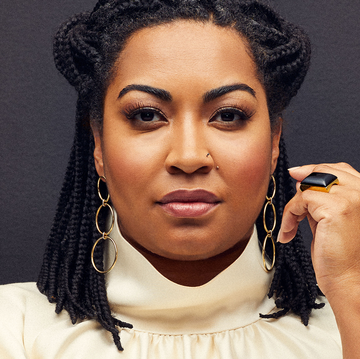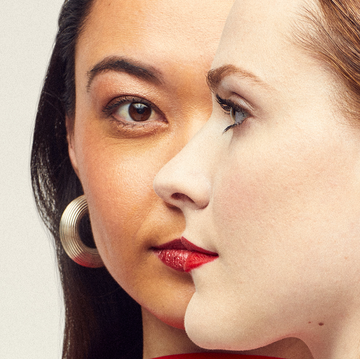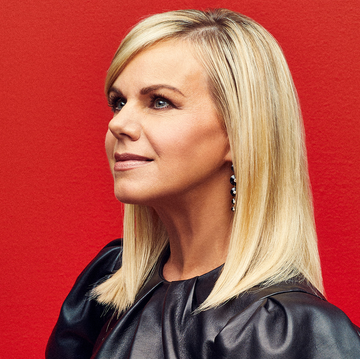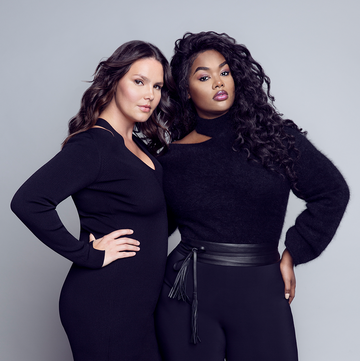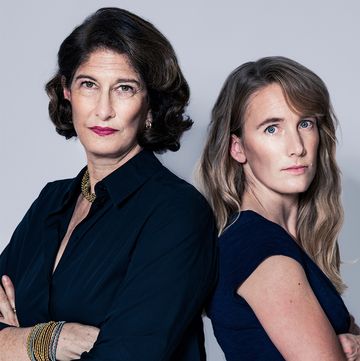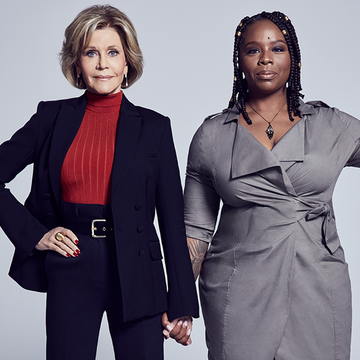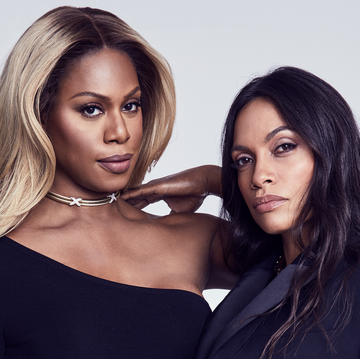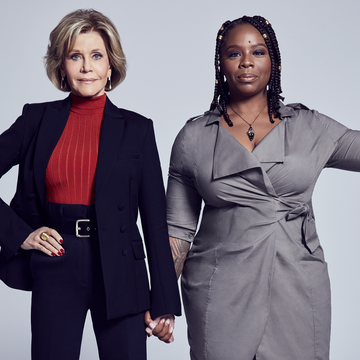The new generation of #WomenWhoDare are those who refuse to conform. They dare to do the impossible, encouraging young visionaries to break—not just push—boundaries, inspiring people around the world to fight for what they believe in. Here, Jennifer Wright talks to New York Senator Kirsten Gillibrand for our 2017 Women Who Dare series.
November 8th was almost a year ago. You probably have vivid memories of where you were that night. Nearly everyone does. Senator Kirsten Gillibrand was at the Javitz Center, waiting for Hillary Clinton to be elected President. "I was still believing in Hillary,” she says, “right up until the moment we lost Wisconsin." Then, she recalls that around her, "tears started to flow."
"I didn’t break down into tears until the next morning when I woke up at 6 a.m.," she recalls. "Then I felt we were in a very dangerous time."
In times when the hyper masculinity of the alt-right seems to dominate American politics—Trump claims never to cry, meanwhile a picture of President Obama crying over the death of children at Sandy Hook is routinely used to mock him by Trump supporters—it’s genuinely refreshing to hear from a politician who is enough in touch with basic human emotion to admit to crying. Those people alongside her who were mocked for being overly emotional on election night now seem prescient regarding some of the misery that lay ahead.
And while some might have been immobilized, Senator Gillibrand immediately went out and started kicking ass. In the past year, she topped the senate in opposing Trump’s nominees, traveled to Puerto Rico and shared her outrage that Trump has threatened to turn his back on the people there, and marked the anniversary of Roe. Vs. Wade by taking to the Senate Floor to stand up for women’s healthcare.
The New York Senator was, of course, right about living in dangerous times. We’ve watched white supremacists cheer the President's sentiments and the President attack private citizens, the free press, and the American judicial system. What’s going on abroad can seem even more dangerous.
Gillibrand recalls that on the morning Trump was elected, her first thought was the Iran deal, signed by Obama in 2015, and stipulated that in return for removal of UN sanctions, Iran would close its nuclear facilities. Trump has called it “the worst deal ever” and supposedly “threw a fit” upon finding out that Secretary of Defense James Matthis, Secretary of State Rex Tillerson, and others in the administration wished to preserve it. Gillibrand remarks that she’s still frightened “that Trump would unwind the agreement. That would undo the potential for decades of peace and the might put us on the path to WWIII.”
Well. At least we didn’t vote for the lady who had a private email server.
But as terrifying as the year has been, there are also moments that Gillibrand has found immensely hopeful. “I thought [the women’s march] was the most inspiring moment in my political life,” she remarks. “Especially because it was intersectional—you could march for reproductive freedom or LGBT or black lives matter. You marched because you wanted to be heard, and that energy and determination hasn’t stopped.”
That’s been essential. Gillibrand notes that grassroots movements are the only reason that we don’t have Trumpcare today. And Gillibrand wants to get more women involved in politics. To that end she’s spearheaded an organization called Off The Sidelines, which, she says, “has been a call to action for women over the last six years.”
Now, getting into politics might not seem like an entirely pleasant proposition for women who watched as Hillary Clinton was told to smile over and over, or heard Elizabeth Warren silenced. There’s no question that sexism affects women in the political arena—as it does in so many arenas. It’s affected Senator Gillibrand. She recalls a time in her 2006 campaign: “My opponent referred to me as ‘just a pretty face,’ and then he used a mailer with the ugliest picture he could find. With a green wash so I looked like a crazed witch.” Gillibrand sighs. “When you talk about women’s appearance it distracts the voter from what she’s running for. Sexism is alive and well in politics as it is in all industries.”
But it’s not keeping women down. “Emily’s List is working with 19,000 candidates as opposed to about 1,000,” Gillibrand says. “To change Washington you need to change the women’s player list. Women are putting themselves between Trump and the horrible things he wants to accomplish. They’re making an effort to stand tall and fight back." To get involved yourself, the Off The Sidelines foundation offers local listings of groups that can help women run for office and win. Through a partnership with Levo League, it can also connect you with mentors who can advise you as you run.
“If we had more women [in office], we wouldn’t be debating whether we should have access to contraception," says the Senator, "and we wouldn’t be fighting so hard to end violence in the military.”
Representation matters. (Gillibrand herself is currently supporting Rep Kyrsten Sinema's run against Jeff Flake in Arizona, and Jacky Rosen in Nevada.)
And if you don’t want to run, then getting involved in some other way can help. Gillibrant is a font of ideas of ways people can get involved in the political process. “We don’t have Trumpcare because so many people shared their personal stories,” she states. You can do the same on the phone with your reps or even social media. “Put a lawn sign on your lawn, go door to door for your candidate. Register people to vote. There’s so much we can do through our voices and time. That’s what flips election.” And start now. Because as Senator Gillibrant grimly notes, if we don’t flip the house in 2018, “then we won’t have a chance of stopping what Trump wants to do.”
2018 is coming soon. The time for crying is over. Now is the time for every woman to raise their voices and fight back.




